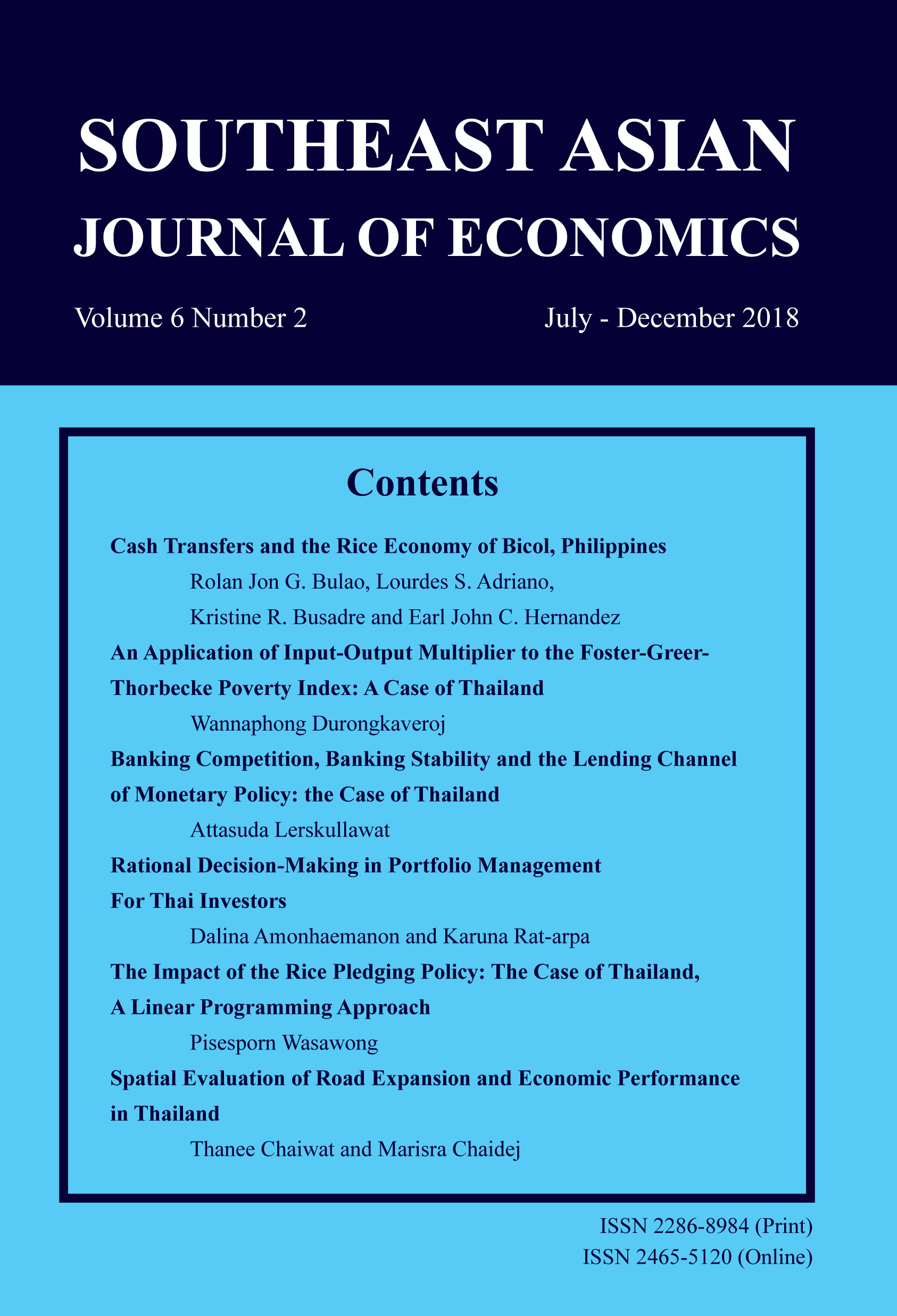Microfinance and Family Ties: Challenge to Reduce the Loan Default in Urban Area in Thailand
Keywords:
Microfinance, Family Ties, Field Experiment GameAbstract
Due to differences in the social structure of urban areas and rurals area, the group lending efficiency in both societies are different. Group lending with family ties can help reduce problems caused by weak social bondage among group members including the moral hazard problem in low income group lending. In the methodology, this study will test the repayment rate of group lending through the method of a field experiment game. The experiment subjects will be divided into 3 groups: 1) Random matching group 2) Self-selected group and 3) Family ties group. When the experiment ends, individual information will be collected and the results will be tested using an Ordered Logit Model. The conclusion of the research is that in urban areas the group lending with family ties gives a good outcome with a high efficiency of repayment rate, compared to the rate of repayment in random matching group lending and self-selected group lending. When considering the effect of shocks to the loan default, we found out that the family ties group is the most effective type to transfer the shock among group members. Therefore, the family ties group can be more sensitive with loan default and tends to have higher chances of group loan default under shock. The other factors that also affects the repayment rate of low income group lending in urban areas are remittance and more than one source of loan.
Downloads
How to Cite
Issue
Section
License
The submission of a manuscript implies that the paper is an original work and has not been published elsewhere. The author(s) authorize the journal to reproduce or distribute the paper in printed or other electronic forms.







